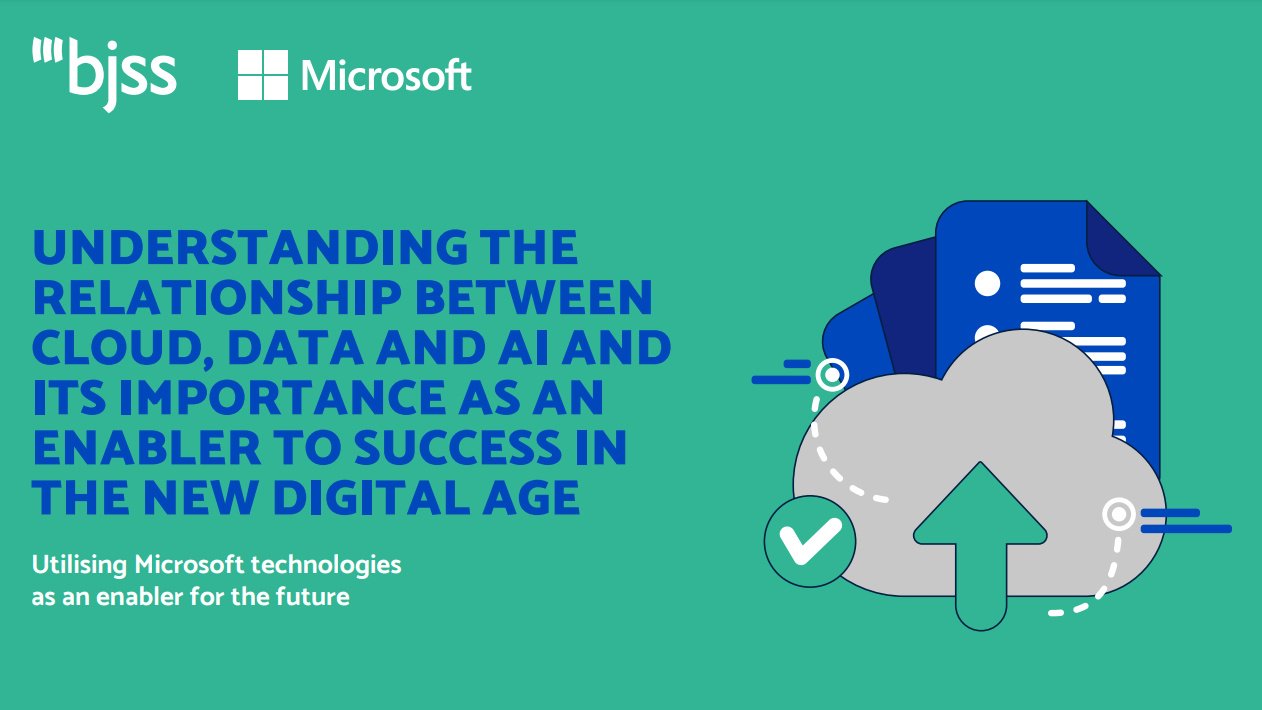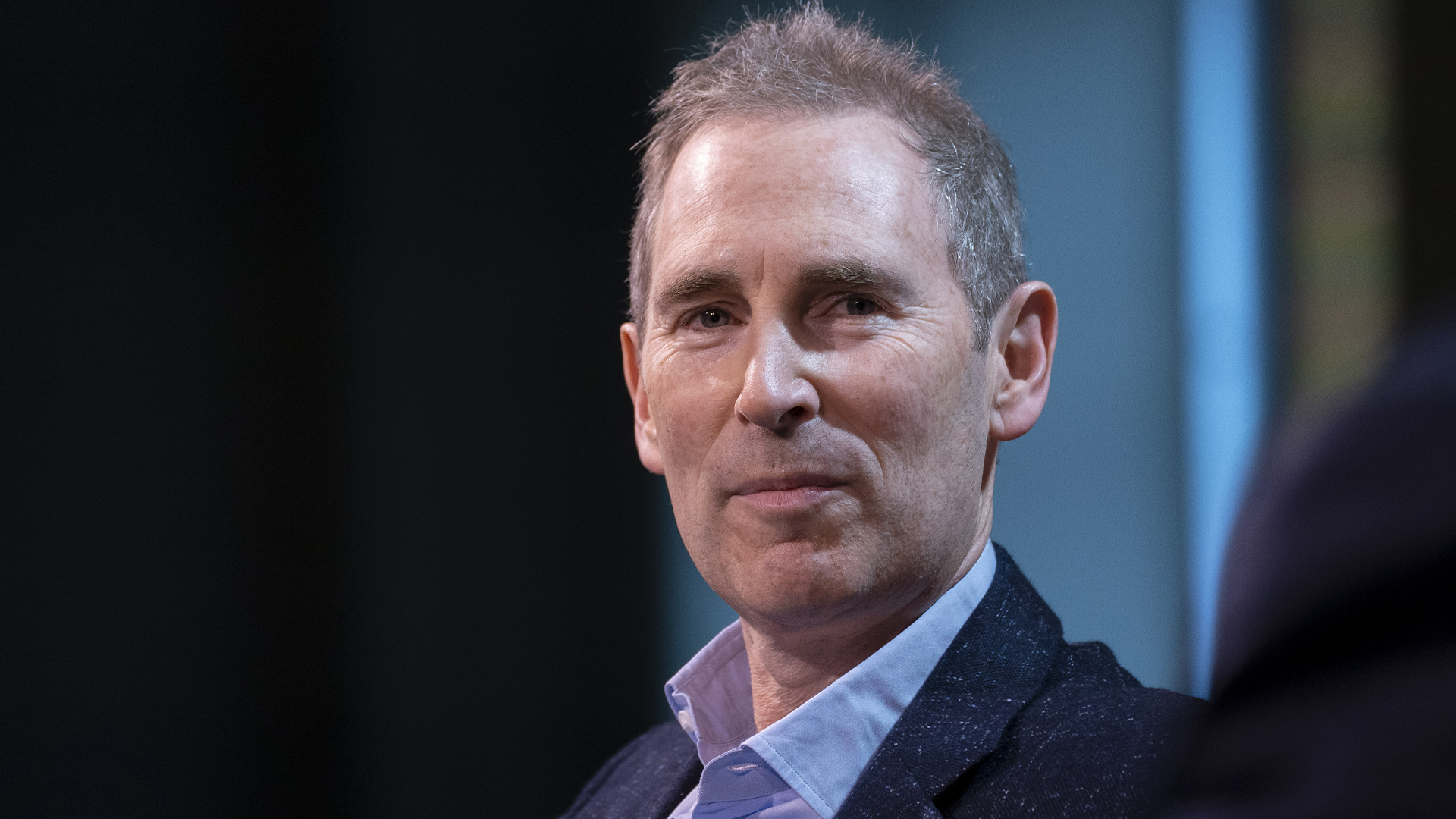IBM’s CEO just said the quiet part out loud on AI-related job losses
Arvind Krishna said “we should all feel better” about the influx of generative AI tools


Sign up today and you will receive a free copy of our Future Focus 2025 report - the leading guidance on AI, cybersecurity and other IT challenges as per 700+ senior executives
You are now subscribed
Your newsletter sign-up was successful
IBM chief executive Arvind Krishna’s latest comments on generative AI-related job losses paint a worrying picture of the fate awaiting workers globally as enterprises look to adopt the technology and streamline productivity.
Krishna shed more light on how the company views recent developments in the generative AI space in an interview with CNBC, noting that the productivity benefits afforded by the technology should not be overlooked by enterprises.
Long-term, he said, generative AI has the potential to “make every enterprise process more productive” and unlock marked benefits for organizations - but that will likely come at the expense of human-held jobs.
“That means you can get the same work done with fewer people,” he said. “That’s just the nature of productivity. I actually believe that the first set of roles that will get impacted are - what I call - back office, white-collar work.”
Krishna’s comments come as no surprise given the widely-documented risks to human workers through generative AI over the last nine months.
“Up to 300 million” jobs globally could be lost to automation in the coming years, according to a report from Goldman Sachs, while a study from McKinsey in July found that administrative roles, such as office support, customer service, and HR will see a decline in roles due to generative AI.
What Krishna’s comments do point to is that the veneer of positive marketing positioning generative AI as a mere support tool for human workers is showing cracks.
Sign up today and you will receive a free copy of our Future Focus 2025 report - the leading guidance on AI, cybersecurity and other IT challenges as per 700+ senior executives
IBM has been bullish on generative AI throughout 2023, and Krishna has been outspoken on the company’s push to deeply integrate these tools within day-to-day operations. In May, the chief exec revealed that around 7,800 staff in non-customer-facing roles could be replaced by AI, equivalent to roughly 30% of staff currently occupying these positions.
The firm has gone so far as to freeze hiring for roles in human resources and assorted “back office” positions in anticipation of automation on these fronts.
More on generative AI
IBM isn’t alone in its focus on AI integration and cutting human workforces, however.
Earlier this year, BT announced it plans to lay off tens of thousands of workers in the coming years and automate a slew of roles. The cuts will see the telecoms giant lay off around 40% of its workforce by the end of the decade.
The firm framed this as a strategy to create a “leaner business”, but the focus on integrating AI that forms a key aspect of this strategy will see up to 10,000 roles cut and replaced with AI.
Administrative and “back office” roles aren’t the only positions in the crosshairs amid the generative AI boom either. KPMG research in July found that tasks performed by programmers and software developers are at risk, along with IT support technicians.
Despite this, Krishna appeared insistent that augmenting human workers is still the key focus, and not workforce consolidation and automation.
RELATED RESOURCE

Prepare your organization for future success by building your IT operations on cloud-native solutions.
DOWNLOAD FOR FREE
“It’s absolutely not displacing, it’s augmenting,” he told CNBC. “The more labor we get, especially if it’s not human based at all, we can create more GDP. We should all feel better about it.”
This position does align with recent analysis from the International Labor Organisation (ILO), which suggested that most jobs and industries are “only partially exposed” to automation, meaning roles are “more likely to be complemented rather than substituted by AI”.
“The most important impact of the technology is likely to be of augmenting work,” the ILO study stated.

Ross Kelly is ITPro's News & Analysis Editor, responsible for leading the brand's news output and in-depth reporting on the latest stories from across the business technology landscape. Ross was previously a Staff Writer, during which time he developed a keen interest in cyber security, business leadership, and emerging technologies.
He graduated from Edinburgh Napier University in 2016 with a BA (Hons) in Journalism, and joined ITPro in 2022 after four years working in technology conference research.
For news pitches, you can contact Ross at ross.kelly@futurenet.com, or on Twitter and LinkedIn.
-
 AWS CEO Matt Garman isn’t convinced AI spells the end of the software industry
AWS CEO Matt Garman isn’t convinced AI spells the end of the software industryNews Software stocks have taken a beating in recent weeks, but AWS CEO Matt Garman has joined Nvidia's Jensen Huang and Databricks CEO Ali Ghodsi in pouring cold water on the AI-fueled hysteria.
-
 Deepfake business risks are growing
Deepfake business risks are growingIn-depth As the risk of being targeted by deepfakes increases, what should businesses be looking out for?
-
 B2B Tech Future Focus - 2026
B2B Tech Future Focus - 2026Whitepaper Advice, insight, and trends for modern B2B IT leaders
-
 'It's slop': OpenAI co-founder Andrej Karpathy pours cold water on agentic AI hype – so your jobs are safe, at least for now
'It's slop': OpenAI co-founder Andrej Karpathy pours cold water on agentic AI hype – so your jobs are safe, at least for nowNews Despite the hype surrounding agentic AI, OpenAI co-founder Andrej Karpathy isn't convinced and says there's still a long way to go until the tech delivers real benefits.
-
 Is an 'AI' bubble about to pop?
Is an 'AI' bubble about to pop?news The Bank of England warns of the risk of a market correction if enthusiasm for the technology wanes
-
 AI isn't taking anyone's jobs, finds Yale study – at least not yet
AI isn't taking anyone's jobs, finds Yale study – at least not yetNews Researchers say it's too soon to know what generative AI's impact will be on the workforce
-
 Is ChatGPT making us dumber? A new MIT study claims using AI tools causes cognitive issues, and it’s not the first – Microsoft has already warned about ‘diminished independent problem-solving’
Is ChatGPT making us dumber? A new MIT study claims using AI tools causes cognitive issues, and it’s not the first – Microsoft has already warned about ‘diminished independent problem-solving’News A recent study from MIT suggests that using AI tools impacts brain activity, with frequent users underperforming compared to their counterparts.
-
 ‘Agent washing’ is here: Most agentic AI tools are just ‘repackaged’ RPA solutions and chatbots – and Gartner says 40% of projects will be ditched within two years
‘Agent washing’ is here: Most agentic AI tools are just ‘repackaged’ RPA solutions and chatbots – and Gartner says 40% of projects will be ditched within two yearsNews Agentic AI might be the latest industry trend, but new research suggests the majority of tools are simply repackaged AI assistants and chatbots.
-
 Andy Jassy memo warns staff that Amazon will "need fewer people" as it rolls out more generative AI
Andy Jassy memo warns staff that Amazon will "need fewer people" as it rolls out more generative AINews Amazon's CEO tells workers to be "curious" about AI and educate themselves to protect their livelihoods
-
 CEOs and CISOs at odds over the benefits of generative AI
CEOs and CISOs at odds over the benefits of generative AINews While CEOs are hugely enthusiastic, CISOs worry about governance and legacy technology
